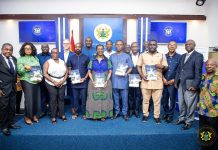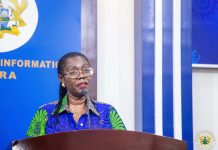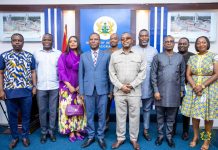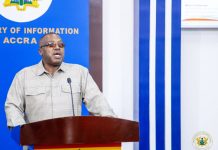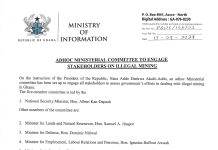The abundance of radio stations in the nation is not only proof that succeeding governments have created an enabling climate, but more importantly, it is proof of Ghana’s vibrant democracy. However, the ongoing lack of regulations to govern the entire sector remains a hidden danger that certainly warrants worry and reflection.
In Ghana, radio broadcasting was first introduced in 1935 during the rule of Sir Arnold Hodson, a British governor at the time of the Gold Coast. Radio broadcasting has had a significant impact on people’s lives in Ghana and worldwide ever since Radio ZOY, the first state broadcast station, and later the Gold Coast Broadcasting Service (GCBS), were founded in 1954. This incredibly old-fashioned style of communication has evolved into a powerful tool for distributing knowledge, entertainment, and propaganda with the short-term goal of doing so. In addition to being reasonably priced, radio is also simple to use and gets to a lot of people quickly, including remote areas.
Arguably, the foundation of Ghana’s democracy has been consolidated and solidified by the power of radio broadcasting. Many notable and historic moments in the country have been transmitted through radio.
Therefore, it was appropriate that 91% of world leaders and stakeholders supported the idea of designating a special day to honour the importance of radio globally. Ghana has celebrated World Radio Day annually on February 13 since the designation was made in 2012. In reality, Ghana observed the day this year with the subject “Radio and Peace,” emphasising the contribution of radio to promoting peace and preventing conflict in the nation. While the day gave participants a chance to commemorate the contribution that radio has made to Ghana’s enduring democracy and peace, it also raises questions about the state of broadcasting today.
Article 21 of the 1992 Constitution is explicit about the fundamental human rights of the Ghanaian citizenry as it guarantees the right to freedom of speech and expression, including the freedom of the press and other media. However, this fundamental right does not include propaganda for war, incitement to violence, hate speech, ethnic incitements, vilification of others etc. Paradoxically, these constitutional breaches have ultimately become the ills of broadcasting, exposing the citizenry, especially children, to sometimes very harmful information. The country was thrown into absolute excitement over the repeal of the criminal libel law, which was seen as unfriendly to press freedom. The repeal has no doubt made its mark in the annals of global history, as the president of the republic, His Excellency Nana Akufo Addo, remarked.
“The repeal of the criminal libel law has impacted very positively on the development of the Ghanaian mass media, freeing them from unnecessary self-censorship and promoting a robust and critical media. Consequently, it has contributed to the growth of a vibrant and critical media that has earned Ghana the reputation of having one of the most media-friendly and liberal climates in Africa”, Nana Akufo-Addo, 2011)
However, it has yet to make the needed impact in terms of content churned out by journalists and largely owners within the broadcasting space.
“The gap still exists where you see content on our broadcast network, and the NMC is unable to do more than discuss, engage, and recommend. The sad thing is that in spite of our initial meetings and conversations, the infractions still continue on our broadcast platforms, but the NCA is unable to act because the collaboration has not taken place yet,”, the Minister for Information bemoaned.
A more significant difficulty is the absence of clear, transparent, and uniform legal criteria for the grant of broadcasting authorizations in Ghana. The National Media Commission was established under the Constitution with the mandate to regulate the press. The provisions under the commission are limited in terms of broadcasting authorizations. The National Communications Authority, though it has the mandate to authorise the establishment and use of spectrum for broadcasting services, is also short on content regulation. These concerns clearly indicate that we have a fundamental weakness, especially when it comes to content regulation, and therefore call for immediate attention. The stakes have become even higher with the rapid spread of broadcasting establishments in the country.
According to an article authored by Jacob Arthur, a lecturer in communication studies at the University of Cape Coast, and published by the Conversation on February 13, 2020, titled Radio in Ghana: from mouthpiece of coup plotters to giving voice to the people, there has been a steady rise in radio production in Ghana over the past 20 years. It is the most consumed medium in the country, with a penetration rate of about 90%. Again, according to the National Communications Authority, as of the 3rd quarter of 2022, 707 FM broadcasting stations had been given frequency authorizations, with 513 currently in operation. These include 31 public radio stations, 5 foreign radio stations, 119 community radio stations, 24 campus radio stations, and 528 commercial radio stations. Ghana’s airwaves are projected to be more vibrant with the introduction of digital terrestrial transmission.
Admitting this potential danger, the government has rightly responded by instituting some measures to maintain some global standards within the broadcasting space. The government, through the Ministry of Information, has facilitated the drafting and signing of a Memorandum of Cooperation (MoC) between the National Communications Authority (NCA), the National Media Commission (NMC), and other stakeholders to serve as a framework to ensure that all stakeholders in the broadcasting industry collaborate to deal with specific emerging issues that may arise.
As a long-term measure, the Ministry is currently facilitating a comprehensive broadcasting bill in consultation with stakeholders in the broadcasting industry. The objective of the broadcasting bill is to provide comprehensive legislation on broadcasting services, including certain internet services regulated by the national media commission and the national communications authority, consistent with the constitution of the Republic of Ghana. This is a very important step towards sanitising Ghana’s airwaves and therefore must be commended. However, parliament has yet to pass the bill into law.
Stakeholders in the industry, non-governmental organisations, and sections of the public have continuously called for parliament to urgently pass the bill, which has been in and out of parliament for some time. The very recent group to drum home a similar message is the Ghana Journalists Association, which, in a press release signed by the General Secretary, urged the government and the legislature to quicken efforts to get the bill passed. “We urge the Executive and Legislature to give maximum attention to the Bill and get it passed immediately. “In fact, the Executive and Parliament cannot absolve themselves of blame as far as the current state of radio broadcasting in Ghana is concerned, and until they work in concert to pass the Broadcasting Bill immediately, they cannot raise any clean hands against the ills of radio broadcasting in Ghana,” portions of the release noted.
Radio continues to be one of the most trusted and used media. That notwithstanding, it has the power to build or possibly disintegrate the current peace and unity that took this country decades to attain. On the occasion of this year’s World Radio Day celebration, Hon. Kojo Oppong Nkrumah called on stakeholders within the radio industry to use their platforms to help in the exercise of bringing peace and unity, particularly in areas prone to conflicts.
“On a day like this, we would like to remind our colleagues who operate in places where sometimes tensions may rise that we have a responsibility to help in the exercise to bring peace and unity and not necessarily fuel it,” he noted.
So, the protocol of observing World Radio Day every year has been established in the country. What is yet to be established is a comprehensive legislation on broadcasting services. So, in the spirit of commemorating World Radio Day, I commend the duty bearers in this case, the government, the Ministry of Information, and stakeholders for showing commitment to this course, and hope that the process of enacting the broadcasting bill will be hastened to speedily eliminate the many ills of broadcasting in the country.
SOURCE: MOI (PR Unit)

